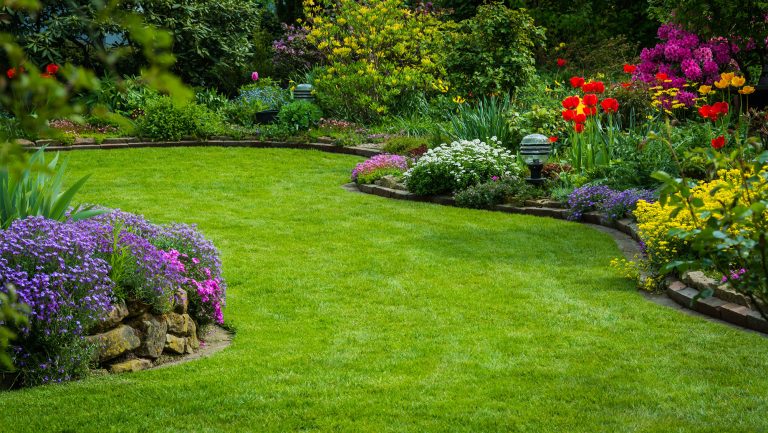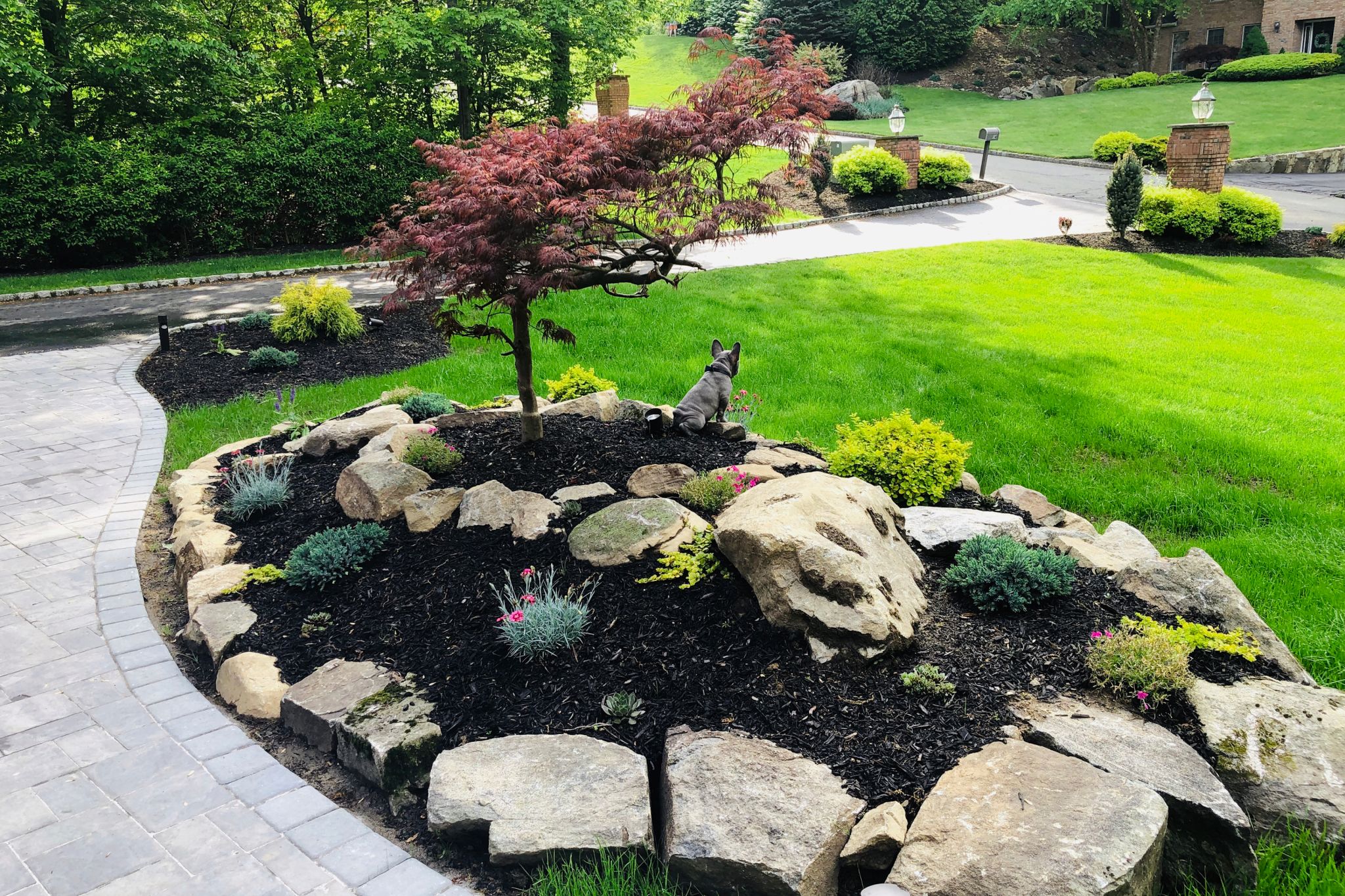Some Known Factual Statements About Landscaping
Some Known Factual Statements About Landscaping
Blog Article
Landscaping Services: Change Your Outdoor Area With Professional Garden Design And Lawn Enhancement Providers
Style Concepts and Components in Landscaping
Have you ever roamed through a garden that felt like a secret poem whispered by nature itself? That sense of harmony and balance doesn't occur by accident. It's the cautious orchestration of style concepts and aspects that change a spot of earth into a living masterpiece. When you believe about landscaping, what comes to mind? Color? Texture? Space? These elements are the fibers woven into the material of every effective landscape.
Balance and Unity: The Foundation of Landscape Design

Balance can be in proportion, where each side mirrors the other like a perfectly folded origami, or asymmetrical, where contrasts develop dynamic tension-- consider a lone oak standing tall against a cluster of wildflowers. Unity ties click here everything together, guiding the eye efficiently from one function to another. Ever discovered how a well-designed garden never feels disorderly but instead invites calm exploration?
Crucial Element to Think About
- Line: It directs movement-- curved courses invite leisurely strolls, while straight lines recommend rule.
- Texture: Rough bark juxtaposed with soft yard includes sensory depth.
- Color: Beyond aesthetic appeals, color influences mood-- vibrant reds energize, while cool blues soothe.
- Scale and Percentage: An imposing sculpture overshadows fragile shrubs, so size relationships must balance.
- Centerpieces: Whether a water feature or a striking tree, centerpieces anchor the space aesthetically.
Applying These Concepts: A Personal Tale
When, redesigning a backyard, I dealt with a stubborn issue: how to produce a sense of enclosure without shutting off the view. Instead of erecting a fence, I planted a staggered row of evergreens with varying heights-- a subtle play on proportion and scale. The outcome was a natural screen that seemed like a cozy nook instead of a barrier. Isn't it interesting how thoughtful application of design elements can fix practical difficulties while boosting charm?
| Concept | Impact | Example |
|---|---|---|
| Balance | Produces harmony | Symmetrical flower beds |
| Unity | Visual cohesion | Constant plant style |
| Centerpiece | Draws attention | Water fountain |
| Scale | Proportional components | Big trees with little shrubs |
| Texture | Differed sensory feel | Mix of rough stones and smooth leaves |
Checking Out Diverse Landscaping Styles
Why choose a cookie-cutter garden when nature offers a combination of styles as varied as the seasons? From the peaceful zen gardens of Japan to the wild, untamed look of naturalistic landscapes, each style forms not just the soil, however the soul of your outdoor area. Do you yearn for order or mayhem in your greenery?
Popular Landscaping Styles and Their Essence
- Formal Gardens: Balance and precision guideline. Think of walking through a maze of perfectly clipped hedges where every corner whispers careful care.
- Cottage Gardens: Overruning with color and charm, this design invites spontaneity, similar to an artist's canvas sprinkled with vibrant flowers.
- Desert Landscaping: Welcome drought-resistant plants and stones; a nod to resilience in dry climates, where every aspect narrates of survival.
- Modern Minimalist: Clean lines, basic shapes, and restrained plant palettes develop a peaceful, almost meditative space-- less truly is more here.
Expert Tips for Picking Your Style

- Examine your soil and environment-- does the style grow naturally, or will you fight versus environment daily?
- Match the landscaping style to your lifestyle; do you want a low-maintenance retreat or a hands-on job?
- Consider the architectural design of your home-- does your garden echo or contrast with your home?
- Use native plants where possible; they provide environmental balance and minimize the requirement for extreme watering or fertilizing.
Ever noticed how some landscaping creates narrate while others simply embellish? The secret lies in thoughtful layering-- blending textures, heights, and colors to craft a living story. A pal once lamented her garden's lack of personality up until she presented a winding path lined with fragrant herbs. All of a sudden, every see became a sensory journey, not simply a visual experience.
Important Tools and Equipment for Mastering Landscaping
Ever attempted battling with a persistent root without a pruning saw - Lawn Care Near Me.?. !? It resembles trying to paint a work of art with a broom. The right tools don't just make the task simpler-- they change your whole approach to landscaping
Consider the humble spade. It's more than simply a hole-digger; a sharp, well-balanced spade can shape the earth with finesse, whether you're edging a flower bed or transplanting a fragile shrub. But beware: dull edges turn effort into aggravation.
Must-Have Hand Tools
- Hand trowels for accurate planting
- Ergonomic loppers to prune without pressure
- Garden forks that aerate soil, boosting root growth
- Weeders that slip under pesky intruders without troubling neighbors
Power Equipment That deserves the Investment
When surface gets hard, a rototiller breathes life into compacted ground, turning hardpan into an inviting bed for seeds. However even with contemporary makers, comprehending soil texture and moisture content remains crucial-- exhausting the earth can cause compaction, the quiet opponent of healthy landscaping.
| Devices | Best Usage | Specialist Tip |
|---|---|---|
| Hedge Trimmers | Shaping bushes and hedges | Cut during dry weather condition to prevent fungal infections |
| Wheelbarrow | Transporting soil, mulch, and plants | Balance loads uniformly to reduce back pressure |
| Leaf Blower | Clearing particles rapidly | Usage morning or late evening to reduce disruption |
Have you ever noticed how the smallest tool can pivot your landscaping experience? A set of quality gloves guards your hands but also supplies unanticipated grip, making each task smoother (Landscaping Services). The secret lies in matching the right equipment with technique-- sharp tools wielded with care outperform strength any day
Ecological Impact and Sustainability in Landscaping
Have you ever paused to consider just how much water your garden guzzles throughout a dry spell? Water conservation isn't simply a buzzword-- it's a lifeline for sustainable landscaping. When plants are chosen without regard to regional environment, the thirst they require can drain resources faster than one may think of. I remember a project where native drought-resistant plants transformed a parched backyard into a dynamic oasis, slashing water use by over 40%. Why opt for thirsty exotics when nature's own combination loves less?
Soil Health: The Unsung Hero

Soil isn't simply dirt; it's a living tapestry teeming with microbes that govern plant health and carbon sequestration. Disregarding soil destruction resembles constructing a home on sand. Composting organic waste and integrating cover crops can revitalize worn out earth, improving nutrient biking and water retention. Ever noticed how mulching can concurrently reduce weeds and lock wetness in? That's the type of double-duty technique that elevates sustainable landscapes.
Expert Tips to Improve Eco-Friendly Landscaping
- Choose native or adaptive plants to lower chemical inputs and watering needs.
- Incorporate rain gardens or bioswales to manage stormwater runoff effectively.
- Limit hardscaping surfaces to prevent heat islands and promote groundwater recharge.
- Use permeable materials for paths and patios to encourage natural water seepage.
- Implement layered planting methods to simulate natural environments and increase biodiversity.
Stabilizing Aesthetics with Ecology
Can a garden be both a banquet for the eyes and a sanctuary for wildlife? Absolutely. I have actually experienced landscapes where pollinator-friendly plants attract bees and butterflies, turning lawns into buzzing environments. This isn't simply a feel-good gesture; it aids in environment remediation, assisting native types rebound. The secret depend on thoughtful design that accepts flaw-- leaves delegated decompose, wildflowers allowed to bloom untamed.
| Practice | Environmental Benefit | Application Pointer |
|---|---|---|
| Rainwater Harvesting | Lowers drinkable water utilize | Install barrels linked to downspouts |
| Native Plant Selection | Supports local animals and minimizes irrigation | Speak with local plant guides |
| Organic Mulching | Improves soil wetness and fertility | Usage shredded leaves or bark |